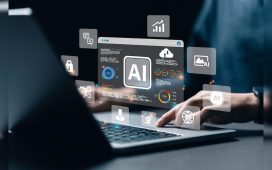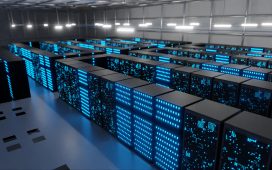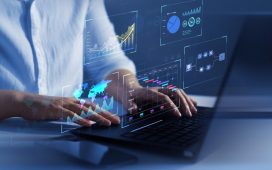Artificial intelligence (AI) is no longer a concept confined to science fiction novels or futuristic movies. It’s here, and it’s rapidly reshaping our world in ways we never imagined. From self-driving cars to voice assistants, AI is already integrated into our daily lives. But is AI truly the future? In this article, we’ll explore the transformative potential of AI, address common concerns, and unveil the exciting possibilities that lie ahead.
The Current State of AI: A Technological Renaissance
AI has come a long way since its inception. Today, we’re witnessing an AIrenaissance, with breakthroughs occurring at an unprecedented pace. Machine learning algorithms are becoming more sophisticated, neural networks are mimicking human brain functions, and natural language processing is enabling machines to understand and communicate with us in ways that seemed impossible just a few years ago. According to a report by PwC, AI could contribute up to $15.7 trillion to the global economy by 2030. This staggering figure underscores the immense potential of AI to drive innovation and growth across various sectors.
AI in Everyday Life: More Than Just Convenience
You might be surprised to learn how deeply AI has already penetrated our daily routines. From personalised Netflix recommendations to spam filters in your email, AI is working behind the scenes to enhance our experiences. But this is just the tip of the iceberg. Smart home devices, powered by AI, are making our living spaces more efficient and comfortable. AI-driven healthcare solutions are revolutionising diagnosis and treatment plans. Even in agriculture, AI is optimising crop yields and reducing resource waste.
The Job Market: Evolution, Not Extinction
One of the most common concerns about AI is its impact on employment. Will robots take our jobs? The short answer is that it’s complicated. While it’s true that AI will automate certain tasks, it’s also creating new job opportunities. A World Economic Forum report predicts that by 2025, 85 million jobs may be displaced by AI, but 97 million new roles may emerge that are more adapted to the new division of labour between humans and machines. The key lies in adapting and acquiring new skills. Jobs that require emotional intelligence, creativity, and complex problem-solving are less likely to be automated. The future workforce will need to focus on developing these uniquely human abilities alongside technical skills.
AI Ethics: Navigating the Moral Maze
As AI becomes more powerful, ethical considerations become increasingly crucial. Issues like privacy, bias in AI algorithms, and the potential for AI to be used maliciously are at the forefront of discussions among policymakers, technologists, and ethicists. Transparency and accountability in AI development are essential. Companies and governments must work together to establish clear guidelines and regulations to ensure AI serves humanity’s best interests
AI and Creativity: A New Frontier
Contrary to popular belief, AI isn’t just about cold, hard logic. It’s also pushing the boundaries of creativity. AI-generated art, music, and even literature are challenging our perceptions of what it means to be creative. For instance, an AI-generated painting sold for $432,500 at Christie’s auction house in 2018, marking a milestone in the intersection of AI and art. While this raises questions about the nature of creativity, it also opens up exciting possibilities for human-AI collaboration in creative fields.
The Road Ahead: Challenges and Opportunities
As we look to the future, it’s clear that AI will play an increasingly significant role in shaping our world. However, realising its full potential while mitigating risks requires a concerted effort from all stakeholders. Investing in AI education and training will be crucial to ensuring that the workforce can adapt to the changing job landscape. Likewise, ongoing research into AI safety and ethics will be essential to address potential risks and ensure that AI development aligns with human values.
Last Words
Is AI the future? The evidence strongly suggests that it is. AI is not just an atechnological trend; it’s a transformative force that will reshape industries, redefine work, and revolutionize how we live and interact with the world around us. As we stand on the brink of this AI-driven future, it’s natural to feel both excitement and apprehension. The key is to approach this new era with open minds, critical thinking, and a commitment to harnessing AI’s potential for the betterment of humanity. The future of AI is not predetermined. It’s up to us to shape it responsibly, ethically, and in a way that benefits all of humanity. By embracing opportunities while thoughtfully addressing the challenges, we can create a future where AI enhances human potential rather than replacing it. Are you ready to be part of this AI revolution?
By Hammad at Surah Mulk











